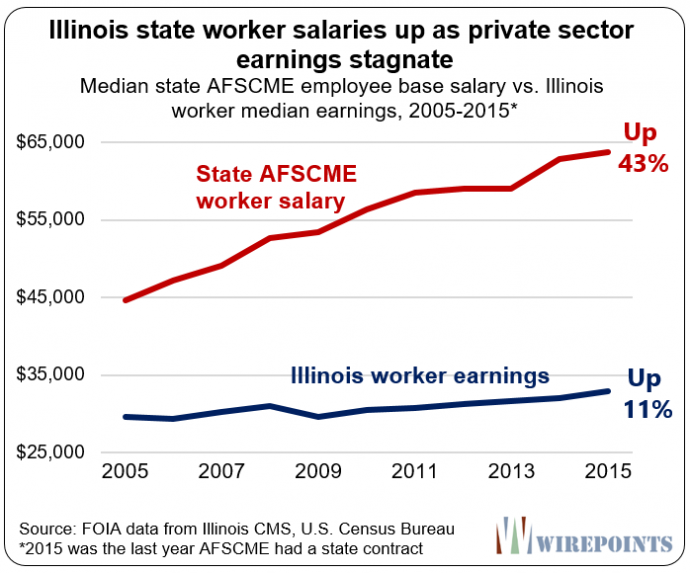Here are six facts Illinois conservatives and Republicans will fail to make more Illinois taxpayers aware of — here are Ted Dabrowski and John Klingner:
Illinois Gov.-elect J.B. Pritzker says one of his first legislative priorities is to focus on things that will “lift up the standard of living” for Illinoisans by “putting dollars back in their pockets.”
He’ll soon be tested on that. Pritzker is due to negotiate a new AFSCME labor contract that has gone unsigned since 2015, when the last contract expired. Whether Pritzker protects the little guy – or just continues to take care of the unions – will be evident by the deal he strikes with AFSCME.
There are six facts Pritzker can’t ignore during negotiations if he wants to give dollars back to ordinary Illinoisans. They’ve been taking a hit for years so that public sector workers could continue to benefit considerably. State workers get the nation’s second-highest pay, automatic salary increases, free retiree health insurance, Cadillac healthcare benefits at subsidized prices, and Social Security on top of overly-generous pensions.
We provide the facts below.
What’s currently at stake is a contract that could cost taxpayers at least $3 billion over its life: That’s the difference between what AFSCME’s been demanding and Gov. Bruce Rauner’s last best offer.
Rauner and AFSCME have been fighting over the terms of the contract for the last three years. The union originally demanded salary raises ranging from 11.5 to 29 percent, a 37.5-hour workweek, five weeks of vacation and enhanced health care coverage. Rauner wanted major reforms to both overtime and healthcare costs.
Now that their adversary is on his way out, the union may end up demanding – and getting – even more than it originally wanted. It all depends on Pritzker.
The data we present below comes straight from FOIA requests, state reports, and the federal government. The story is clear regardless of where the data comes from: Illinois state-worker benefits are way out of line with what ordinary Illinoisans can afford.
Read more: Wirepoints

